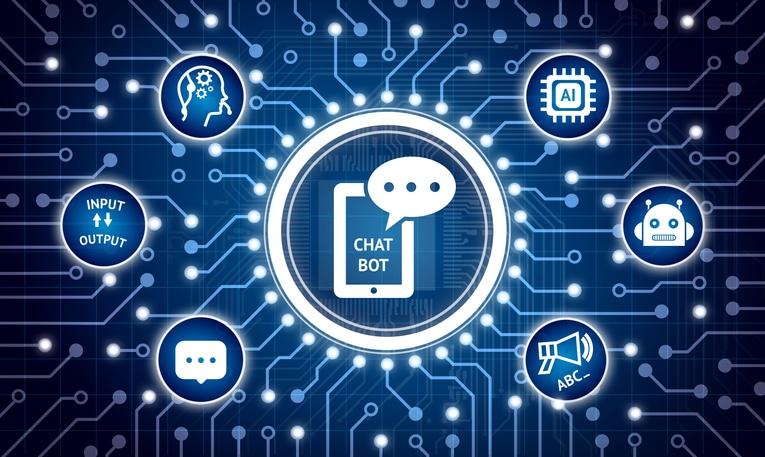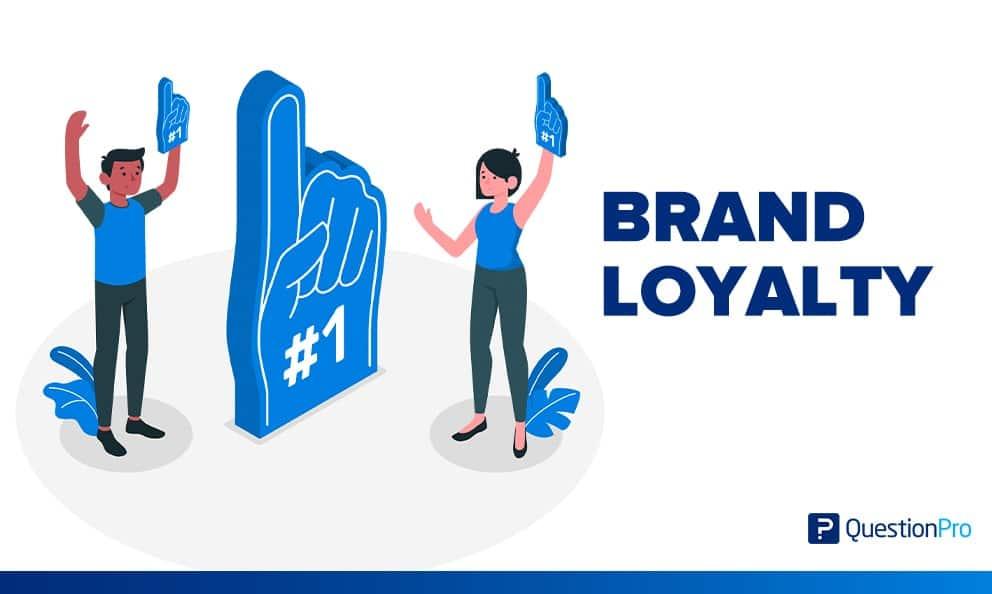
In an era where every dollar counts and competition is fiercer than ever, small businesses often find themselves at a crossroads—how to make a important impact without a significant budget. Enter the transformative power of artificial intelligence (AI). Once the realm of tech giants and Fortune 500 companies, AI has evolved into a valuable ally for marketing, democratizing access to complex strategies that were previously out of reach for smaller enterprises. In this article, we will explore how leveraging AI can empower small businesses to maximize thier marketing effectiveness, enabling them to connect with their audiences in meaningful ways, optimize resources, and drive growth without breaking the bank. Join us as we delve into the tools, strategies, and insights that can help you harness AI’s potential, turning tight budgets into expansive opportunities.
Table of Contents
- Understanding the Power of AI in Small Budget Marketing
- Tailoring Targeted Campaigns Through Data-Driven Insights
- Cost-Effective Tools for Automating Marketing Processes
- Building Brand Loyalty with Personalization Strategies
- Q&A
- Concluding Remarks

Understanding the Power of AI in Small budget Marketing
In today’s competitive landscape, small businesses often face the challenge of maximizing their marketing efforts with limited resources. Artificial Intelligence (AI) offers a transformative approach, enabling them to harness data-driven insights without the need for hefty budgets. By leveraging AI tools, small marketers can segment their audience more effectively, ensuring that their messages reach the right people at the right time.This targeted approach not only enhances engagement but also increases the likelihood of conversion, ultimately making every marketing dollar count. Key advantages of using AI in marketing include:
- Predictive Analytics: AI can analyze ancient data to predict consumer behaviour, helping businesses craft timely offers.
- Chatbots and Virtual Assistants: These tools provide 24/7 customer service, enhancing user experience without the need for extensive staffing.
- Content Personalization: AI algorithms can personalize marketing messages, tailoring content based on user preferences and behavior.
Moreover, small businesses can benefit from AI-driven marketing tools that automate repetitive tasks such as social media posting and email marketing, freeing up valuable time for creative strategy development. On a budget, investing in a few key AI platforms can dramatically level the playing field. Consider the following table that outlines essential AI tools and their benefits for small marketing initiatives:
| AI Tool | benefit |
|---|---|
| Hootsuite | Automates and schedules social media posts,maximizing audience reach. |
| Mailchimp | AI-driven insights optimize email campaigns for better engagement. |
| Canva | offers AI-assisted design tools for creating eye-catching marketing materials. |

Tailoring targeted Campaigns Through Data-Driven Insights
In today’s competitive marketplace, understanding your audience is no longer a luxury but a necessity. By leveraging data-driven insights, businesses can craft highly targeted campaigns that resonate with specific customer segments. This involves analyzing user behavior, preferences, and demographics to distill valuable insights. Armed with this knowledge, marketers can create customized messages that speak directly to their audience’s needs, resulting in higher engagement rates and a more effective allocation of limited marketing resources. By focusing on the right channels and timing, brands can capitalize on opportunities that would or else go unnoticed.
To ensure the effectiveness of targeted campaigns, incorporating elements such as personalization and real-time feedback loops can substantially enhance performance. Strategies may include:
- Segmenting audiences based on data analytics to tailor messages.
- Creating dynamic content that adjusts based on user interactions.
- Employing A/B testing to refine campaign elements based on quantifiable outcomes.
For marketers operating on tight budgets, adopting AI-driven tools can streamline this process. The integration of artificial intelligence facilitates the analysis of large datasets to uncover patterns and trends, enabling the efficient allocation of resources. brands can utilize this approach not only to maximize their campaign’s reach but also to enhance customer relationships through timely and relevant communications. Below is a simple overview of potential AI tools commonly integrated into marketing strategies:
| Tool name | Function | budget Suitability |
|---|---|---|
| HubSpot | marketing automation | Mid-level |
| Mailchimp | Email campaigns | Low-budget |
| Hootsuite | Social media management | Mid-level |
| Canva | Design visuals | Low-budget |
Cost-Effective Tools for Automating Marketing Processes
Embracing automation in marketing doesn’t have to be a costly venture,especially for small businesses operating on narrow budgets. Today, a multitude of affordable tools can streamline your marketing tasks, enabling you to focus on crafting impactful strategies without breaking the bank. Some of the most effective tools include:
- Mailchimp: Known for its user-friendly interface, offering email automation with customizable templates.
- Hootsuite: A social media management tool that allows scheduling of posts across various platforms at once, saving you hours of manual work.
- Canva: This graphic design platform is ideal for creating stunning visuals for your marketing content without requiring design skills.
- Zapier: A powerful integration tool that connects your favorite apps and automates workflows between them.
- Buffer: Simplifies social media scheduling and provides analytics to track your performance.
Along with these platforms,utilizing data-driven insights can maximize the effectiveness of your marketing efforts. By leveraging analytics tools, you can monitor customer behavior and tailor your campaigns accordingly. Consider using tools like:
| Tool | Purpose | Cost |
|---|---|---|
| Google Analytics | Website traffic and behavior analysis | Free |
| Hotjar | User behavior tracking and heatmaps | Starts at $39/month |
| SEMrush | SEO and keyword research | Starts at $119.95/month |
These tools help you make informed decisions and build campaigns that resonate with your audience, ensuring that even on a tight budget, your marketing can still make a significant impact.

building Brand Loyalty with Personalization Strategies
In today’s competitive landscape, creating meaningful connections with customers is pivotal for any brand. Personalization strategies enable businesses to tailor experiences that resonate with individual preferences,thereby fostering a sense of belonging. By leveraging data, companies can deliver targeted content, ensuring customers feel valued and understood.Consider incorporating these techniques:
- Dynamic Content: Adjust your website or email content dynamically to reflect user behavior and preferences.
- Segmentation: Divide your audience into smaller groups based on demographics or purchasing history to send more relevant messages.
- Custom Recommendations: Utilize AI algorithms to predict and suggest products that each customer is likely to purchase.
Moreover, personalization isn’t just limited to marketing messages. It’s also essential in enhancing customer service experiences. Implementing AI chatbots can provide tailored assistance, responding to individual concerns and queries in real-time. This level of engagement not only strengthens customer relationships but also drives loyalty. Businesses can take advantage of the following:
| Strategy | Benefit |
|---|---|
| Personalized Emails | Increases open and conversion rates. |
| Customized Promotions | Encourages repeat purchases through exclusive offers. |
| Feedback Loops | Collects customer insights for continuous improvement. |
By embedding these personalization tactics into your marketing strategy,brands can cultivate loyalty and create advocates who share their positive experiences,amplifying the impact of their modest budgets.
Q&A
Maximizing Impact: AI empowering Marketing for Small Budgets
Q: How can small businesses leverage AI in their marketing strategies?
A: Small businesses can harness AI by utilizing tools that automate and optimize various aspects of their marketing efforts. For instance, AI-powered analytics can help identify customer behavior patterns, allowing businesses to tailor their campaigns more effectively. Additionally, AI chatbots can enhance customer service without the need for a large staff, ensuring potential customers receive instant responses and support.
Q: What specific AI tools are accessible for small budgets?
A: There are numerous AI tools designed for small businesses that are cost-effective. Platforms like Mailchimp offer AI-driven email marketing features, while Hootsuite uses AI to optimize social media scheduling and content placement. Tools like Canva provide AI-enhanced design features, making it easier to create striking visuals without needing a graphic designer.
Q: How does AI help in understanding customer preferences?
A: AI can analyze vast amounts of customer data to identify trends and preferences that may not be immediately apparent. For example, by segmenting audiences based on purchasing behavior or engagement metrics, AI enables marketers to create personalized experiences that resonate more with their target demographic, thereby increasing engagement and conversion rates.
Q: Are there any downsides to using AI in marketing for small businesses?
A: While AI offers numerous advantages, there can be challenges. Over-reliance on automated systems can lead to a lack of personal touch in marketing communications. Additionally, implementing AI may require some initial training or up-front costs, which might strain very tight budgets. However, when approached thoughtfully, the benefits of improved efficiency and insights often outweigh these concerns.
Q: Can AI enhance content creation for small marketing teams?
A: Absolutely! AI tools like Grammarly and Copy.ai can assist small marketing teams in generating ideas, proofreading, and even creating SEO-optimized content. This streamlines the content creation process, allowing teams to focus on higher-level strategy and creativity, all while producing quality content more rapidly.
Q: Is it necessary for small businesses to fully understand AI technology to benefit from it?
A: Not at all! While a basic understanding of AI can definitely help in selecting the right tools and setting realistic expectations, many user-friendly platforms are designed with simplicity in mind. Small business owners can start with straightforward applications and grow their understanding as they see results, making it unnecessary to possess in-depth technical knowledge.
Q: What’s the most important thing a small business should remember when implementing AI in their marketing?
A: The key is to stay focused on the customer. While AI can provide remarkable insights and streamline processes, it should always be used to enhance the customer experience. By keeping the end-user at the forefront of your strategy, AI can be a powerful ally in building lasting relationships and driving growth, even on a small budget.
Concluding remarks
In a landscape where marketing budgets often dictate the scope of creativity and outreach, AI emerges as a beacon of possibility for small businesses. By harnessing the power of artificial intelligence, companies can level the playing field, maximizing their impact without breaking the bank. From automation to data-driven insights, AI tools allow marketers to craft personalized experiences that resonate with their audience—driving engagement and loyalty. as we conclude our exploration of this transformative technology, it’s clear that the future of marketing is not solely for the well-funded giants, but is ripe with possibility for those willing to embrace innovation. By integrating AI into their strategies, small businesses can unlock new avenues for growth, efficiency, and customer connection. So, take the leap into the world of AI; the tools are within reach, and the potential for remarkable impact is yours to seize. The question now is—how will you leverage these insights and tools to elevate your small business to new heights? The journey begins with a single step.

